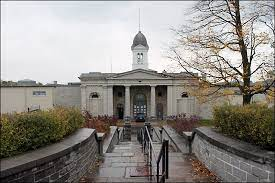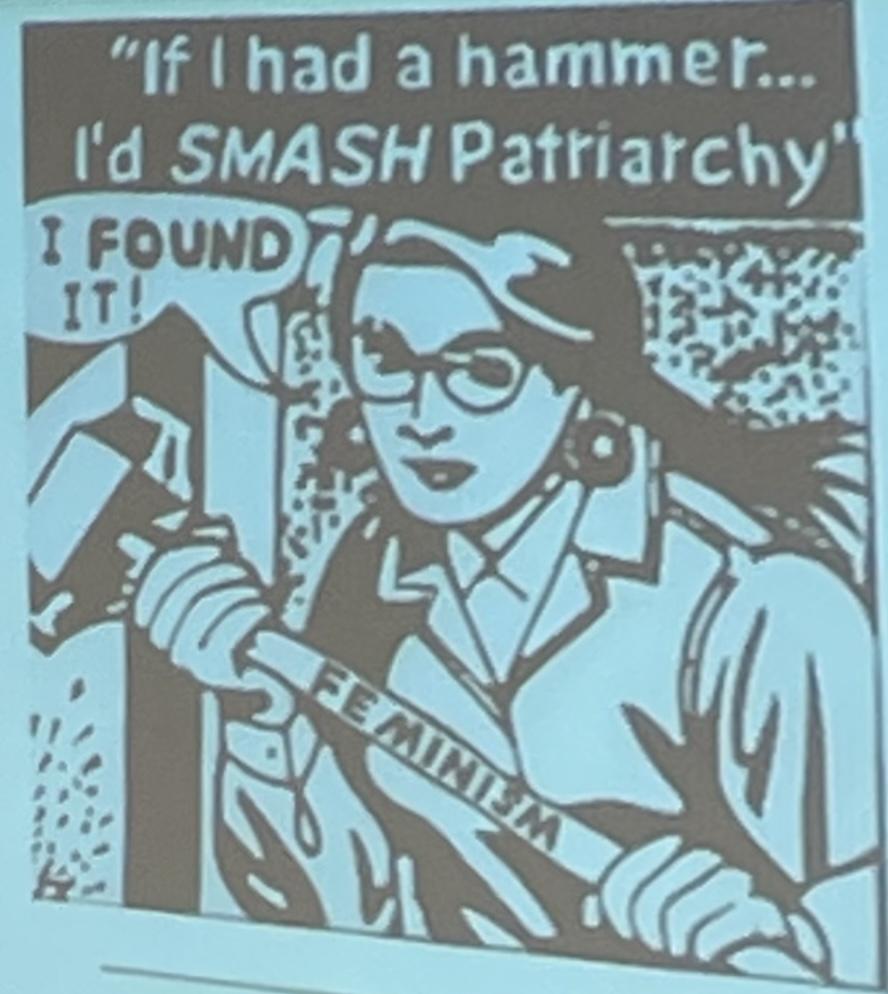Sociology
Sociology
The study of social life, social change, and the social causes and consequences of human behaviour. (American Sociological Association)
The social science discipline that looks at the development and structure of human society and how it works (transitions in social, challenge and change)

2 Types of Sociology
Micro Sociology
The study of social encounters, experiences, roles, and interactions of individuals and small groups in society
Macro Sociology
A sociological approach to in which groups social systems, and structures are analyzed on a large scale
Sociology Subject Matter:
Sociologists investigate the structure of groups, organizations, and societies, and how people interact within these contexts.
Hierarchy
The ranking system used in any environment based on authority of power
Each position or role requires a certain type of expertise which is valued by society
In order to distinguish between these roles people are expected to to dress and act in a certain way
On any given day we can plan many different roles in society - e.g.. A parent can drive their kids to school and then go to work and teach their students
Norms
These are rules set out for a particular role that are considered standard behaviour
Values
Society carries with it a system of values. A particular set of values. A particular set of values are assigned to each role. The practitioners of these roles are expected to accept and internalize these values.
The Roles We Play
We all play certain roles in our society - Social Scientists refer to this as status
Status is the term used to describe our position within an institution
Our Roles are sets of behaviours that we are expected to demonstrate as part of our status - the part we play in our socialization
Deviance
Deviance - Any behaviour that is different from the societal norm. It is deviant because we, as a society, do not accept it
Can range from different areas; from simple eccentricities to behaviour that harms society or is considered disreputable
“We must not say that an action shocks the common conscience because it is criminal, but rather that it is criminal because it shocks the common conscience. We do not reprove (denounce) it because it is a crime, but it is a crime because we reprove it” - Emile Durkeim
Rehabilitation
Sociology has formed a strong link with the justice system
A fundamental component of modern imprisonment is rehabilitation, or trying to re-educate and resocialize inmates so that they can grow to accept society's values and norms
Photo of Kensington Penitentiary

Schools of thought in Sociology
Sociologists have debated among themselves about the real nature of society
As societies change and become more diverse sociologists need to consider cultural diversity when considering sociological issues
Structural-Functionalism
Studies how society works to meet the needs of its members.
According to structural-functionalism, each society should provide its members with the fundamental requirements for functioning
A system must have a way of fulfilling material needs, a system for socializing and educating the young, a way of regulating human reproduction (usually marriage)
Structural-Functionalists believe their role is to try to explain the role of society's systems in enabling human society to function
They do not concern themselves with change but instead with how society works to meet their needs
Neo-Marxism
Based on ideas originally proposed by Karl Marx (1818-1883)
He believed that economic power led to political power. This is the key to understanding ideas
The struggle for economic power means that society is not static but ever-changing - social change is the result of a change made to the economic system
Therefore, if we want to understand society, we must understand the economic system in place
Neo-Marxists believe the economic system creates a rich class of owners and a poor class of workers
They also believe in social institutions (churches, schools. Prisons etc.) have been created to perpetuate the division between the powerful and the powerless

Symbolic Interactionism
Understands societies by understanding how the human mind intervenes between what we observe and how we react.
Focuses largely on micro-interaction between people of all sorts. It’s all about how we create meanings through interactions
Symbolic interactionists believe humans have complex brains and little instinctive behaviour
Inclusionism
Underst
Assimilation
View racial and ethnic minorities would gradually be absorbed into the dominant culture through public
Present interpretation suggest that individuals want to have daily interaction with other cultural groups and leave behind their own cultural heritage
Ex. Wearing jeans, and a T-shirt; and no longer wearing a hijab
Inclusionism
Sociologists (Durkheim, Weber, Marx) agreed that race is one factor that may play a role in forming human identity.
Inclusionists recognized that conflict could take place in a society between ethnic, racial and religious groups as well as between economic classes
Inclusionist study experiences of ethnic groups and rejects the urge to judge through the eyes of the majority.
Before WWII, most sociologists took an assimilationist view of race believing the cultural majority would eventually absorb the minority (melting pot)
In the late 1960s however, changing immigration policies change all this as large numbers or immigrants moved to places like Canada to live
Feminist Theory
Explains the impact of sex and gender on behaviour and to consider issues of human behaviour from the specific point of view of women
Focuses on the sexism in value systems that need to be changed for society to function
Feminist Theorists focus on sex and gender issues, believing that women have traditionally been disadvantaged in society because men have discriminated against them
They believe that men have made the decisions in society and that these decisions tend to favour men.
Types of Feminism
Liberal feminism (45:45 - 20)
The claim of women for equal rights is regarded in the context of a general opposition to many types of oppression and discrimination, regardless of other political ideas.
Focuses on social policy to open professional, better paid and prestigious jobs to women and the elimination of laws discriminating against the political, property and social rights of women
Marxism Feminism (53:20)
Marxian Feminists believe that women’s unpaid and undervalued domestic work has made it possible for industrial owners to pay lower wages to male workers
They also believe that the continuation of lower paid jobs has enabled the dominant class (the capitalists) to retain their control
Radical Feminism (59:10)
The belief that women's oppression is caused by the patriarchy, which is a system of male authority that is especially manifested in sexuality, personal relationships, and the family, but that spills over into the rest of the male-dominated world.
Socialist Feminism
Socialist feminists view the profit-driven capitalist system as the main bulwark of patriarchy, and the driving force behind labor exploitation, poverty, racism, homophobia, anti-immigrant bias and war.
The F-Word: Who wants to be a feminist?
People hide the fact that they are feminists (some don’t know the definition)
What is Feminism?
The belief in full social, economic, and political equality for women
What is a Feminist?
That you fight for the equality of all people. It's important that your feminism is intersectional; it should not exclude people based on their gender, race, socioeconomic status, ability, or sexual orientation.
The 1st Wave - Politics
1918 Canadian Women get the right to vote
1920 - American Women get the right to vote
Two world wars - women in the work force
The 2nd Wave - Economics
Postwar baby boom 1960's
Betty Friedan - "The Feminist Mystic"
Gloria Steinman - Ms. Magazine
Benefits - white middle-class women
The 3rd Wave - Culture
Race, Gender, Social Class, and Sexuality
Men are not equally sharing domestic work
In the U.S., the Regan Administration downgrades women out of the home
Media backlash perpetuates myth of women being depressed and ill because they are not complying to their natural roles.
Book - "The Undeclared War Against Women in the Media" (Susan Faludi)
Attacks Media stereotypes
Naomi Wolf writes "The Beauty Myth*
Shows how the media uses images of beauty to suppress women
The 3rd Wave in 2020…
United Nations recognizes
Women make up 53% of the population but own only 1% of the wealth
Women in Canada hold only 11% of the seats on corporate boards
Women work ½ the jobs but make 20% less pay then men.
Men still have not fully integrated into the home sharing of domestic work.
Article on www.salary.com regarding salary of women in several occupations.
Women as housekeepers, daycare providers, chauffeurs, psychologist, chefs, recreational therapists, interior designers, etc..
Salary = $178,201 a year
Women do the majority of unpaid work
4.3 hours a day = women
2.5 hours = men
Canada stats eliminated this statistic from their evaluation
During the Harper & Conservatives government there was a considerable defunding of government sponsored programs for women. Under Trudeau we see an increase.
Politics
Women only hold 29% of their seats in parliament (Scandinavian countries where women are well integrated into government office)
2020 saw a record number of women elected -- but gender equity in the House of Commons is still far off as we prepare to enter in 2024
Why is it difficult for women to win in Politics?
50% less likely to run
Fear of exposure (attack family, personal, etc.)
Fear of raising money
The 4th Wave - Media
Fourth-wave feminism is a phase of feminism that began around 2012 and is characterized by a focus on the empowerment of women and the use of the internet and social media and is centered on intersectionality
Is there a 5th Wave? - Sustainability
The fifth wave of feminism has eveolved into a multi-dimensional solution that combines the forces of politics, economics, culture, media, and, and sustainability to build the argument for gender equality.
Intersectional feminism (what is white feminism?) - White feminism is a term that is used to describe a type of feminism that overshadows the struggles women of color, LGBTQ women and women of other minority groups face.

Family Roles
Traditional vs. Modern
The ‘housewife’ - Evolution or Revolution?
House - “wife”?
The term “housewife” can be defined as the household member who is responsible for the household duties
Stereotypically the term may be more associated with a woman, a housewife may be male OR female - there is usually one that housewife per household
The term may also refer to a wife who manages a household while her husband earns the entire family income.